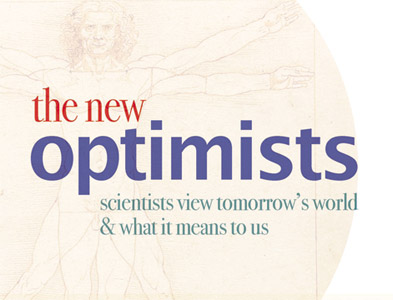Just how do your cells know what’s particularly you and what’s not-you? How, for all of us, do our cells discriminate between self and non-self?
Or, to put it into the more formal language of immunologists, what is the spectrum of antigens recognised by the peripheral T-cell population?
Such is the important work of Professor Graham Anderson in the School of Immunity and Infection at the University of Birmingham. And it’s complex work, requiring the input from a variety of disciplines, and from clinicians as well as pure researchers — Professor Anderson, for example, monitors how designer organs function in an in vivo setting.
In The New Optimists, Professor Anderson makes the point that it’s this very sociability of science and scientists that leads to a sharing of ideas, a key driver in developing scientific understanding.









